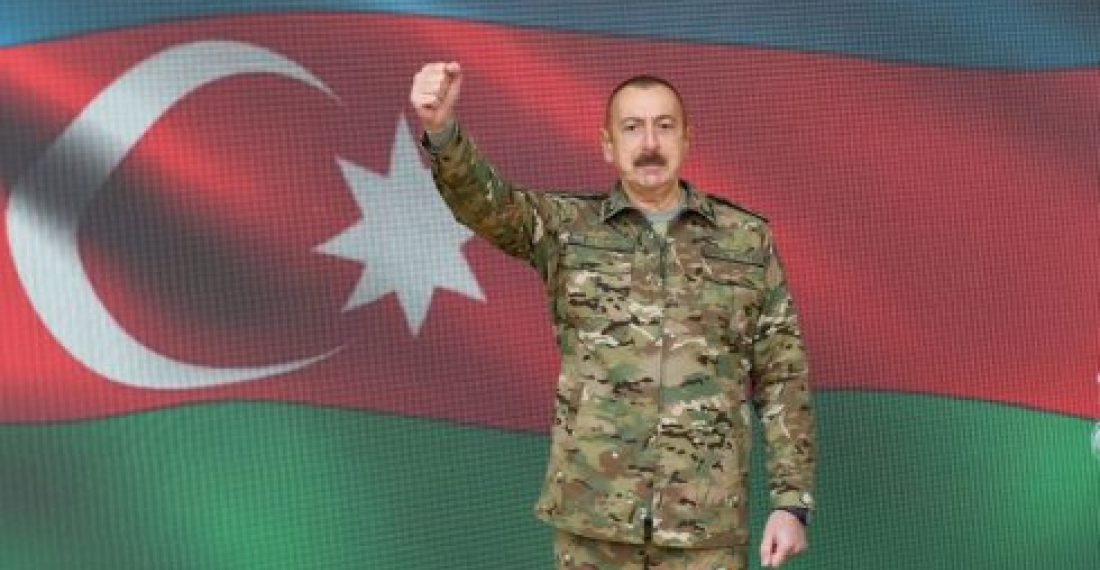Azerbaijan president Ilham Aliyev has announced that the Azerbaijani army has taken the town of Shusha - a place of great symbolic importance to Azerbaijanis and which is within the boundaries of the territory of Nagorno-Karabakh.
Wearing military fatigues, the Azerbaijani president spoke on state television on Sunday morning (8 November) to announce the capture of the town, which some describe as the "spiritual capital of Azerbaijan" and which has been under Armenian control since 1992. Before the war started the Armenian leadership of the self-declared Nagorno-Karabaklh Republic had announced that they intended to move their parliament from Stepanakert to Shusha, creating a sharp reaction in Baku.
The capture of Shusha also gives Azerbaijan important military advantage over the city of Stepanakert which is the largest settlement in Nagorno-Karabakh and is a psychological blow for Armenians who have been fighting hard to stop the Azerbaijani advance. There are reports that the civilian population of Stepanakert is being evacuated.
Armenia overnight reported that Stepanakert had been hit by eight Azerbaijani missiles. There has not been an official confirmation of the events in Shusha on the Armenian side, but this morning the de facto president of the self-declared Nagorno-Karabakh Republic, Arayik Haroutyunyan, wrote on his facebook page "I greeted one of the hardest dawns of my life at Renaissance Square of Stepanakert. We stand with the defenders of our Homeland until the end. The life-and-death struggle continues," Haroutyunyan added.
In the meantime behind the scenes, intensive diplomatic efforts continue in an effort to stop the war that is now entering its seventh week. On Saturday, Russian president Vladimir Putin has spoken to the leaders of Armenia and Azerbaijan and also to the president of Turkey, Recip Tayip Erdogan, and the president of France Emanuel Macron.
source: commonspace.eu with agencies
photo: Azerbaijan president Ilham Aliyev, wearing military fatigues, appeared on State Television to announce his army had captured the town of Shusha, which has been under Armenian control for 28 years.






